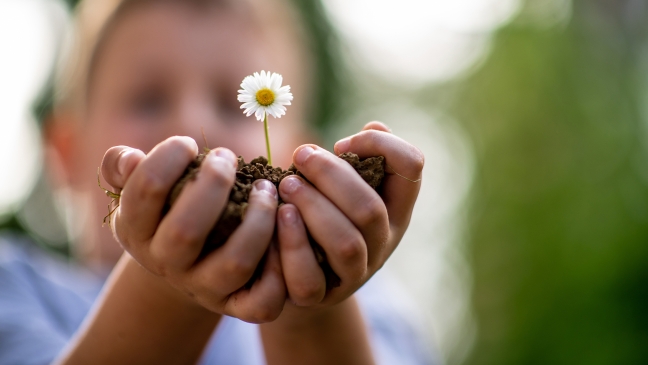There are some things from my time as a nursery school headteacher that I will never forget, like the day that three-year-old Jayda was taken into local authority care.
Her behaviour had become more and more erratic and worrying. She was running away, biting and hiding under tables. I still have the trace of a scar on my arm from where she bit me.
Concerns from her grandparents, neighbours and nursery staff were piling up and it was clear that home wasnŌĆÖt a safe place for her.
The young social worker who came to talk with JaydaŌĆÖs mum was as kind, clear and compassionate as she could be, as she explained that Jayda would not be going home at home time. Both Jayda and her mum were, in their different ways, devastated.
Although this all happened about three decades ago, the events came back to me vividly when Jayda recently contacted me via social media and asked if we could meet. She said she had some precious memories from her time in the nursery school, and also some questions.
Special nursery memories
When we met, I was surprised to see her take what we called her ŌĆ£special bookŌĆØ out of a big padded envelope. As a staff team, we spent a huge amount of time putting these books together, documenting childrenŌĆÖs play and learning.
This was back in the era when photos had to be developed and then manually stuck into books, with handwritten captions underneath.
JaydaŌĆÖs book was still pristine. I asked her how she had managed to keep it with her. She told me that as she moved from one foster carer to the next, some happy homes, some unhappy, this book was her one constant; it was something she treasured.
What made it so special? Jayda explained that, as well as enjoying revisiting the memories of happy times playing in the nursery garden, there was one thing that was really important to her: ŌĆ£You didnŌĆÖt just take photos of me - you wrote underneath what I said about what I was doing. All my thoughts were there and you listened to me.ŌĆØ
The magic of the early years
JaydaŌĆÖs special book was put together by her nursery key person, Theresa, who was determined to go the extra mile for her. She used to say that every child needed someone who would walk over hot coals for them. Theresa was that person for Jayda.
Jayda found it hard to play with others, to listen, to follow instructions or to focus on things. She would often get furiously angry about seemingly small things. So, while it wasnŌĆÖt easy for Theresa to be her key person, she understood why Jayda could be hard work, and never gave up on her.
She introduced Jayda to gardening; despite being in an inner-city location, we had lots of planters for growing vegetables.
Theresa patiently helped Jayda learn to take part alongside the other children and to be gentle with the plants. She probably chose Jayda more often than was strictly fair for watering duties and other special responsibilities.
Jayda explained to me in the caf├® that she is now the deputy manager of a garden centre and lives in the countryside.
Why early learning matters
Nowadays, I often write and speak about the long-term impact of early learning and why it matters for us to make sure that every child gets off to a good start. But talking with Jayda was a powerful reminder of something else: the magic of the early years.
When we prioritise relationships and responsive, loving care at this stage of education, we act on a crucial insight: learning is not just about absorbing knowledge, itŌĆÖs about becoming part of something bigger.
Children donŌĆÖt just need our help to learn key information and skills; they also need support to work out who they are, as individuals and as members of a community.
For some vulnerable children, like Jayda, this journey takes time. Educators may need a great deal of patience, persistence and empathy.
ItŌĆÖs something to bear in mind as the government pushes ahead with its plan to expand school-based nursery provision and hopes to realise its target of 75 per cent of five-year-olds reaching a in EYFS assessment by 2028.
Of course, we should be ambitious for every child to reach a good level of development by the end of EYFS. But, just as importantly, we must never overlook the long-term power of belonging - of each child feeling seen, valued and accepted for who they are, not just for what they can do.
Theresa invested a lot of heart in JaydaŌĆÖs care. The love and attention she paid to JaydaŌĆÖs interests and thoughts became a deep well that Jayda drew on throughout her childhood and teenage years.
No wonder she has kept her special book safe in that big padded envelope for so long.
For an indispensable look at the weekŌĆÖs biggest stories and talking points, sign up for our Weekly Debrief newsletter






